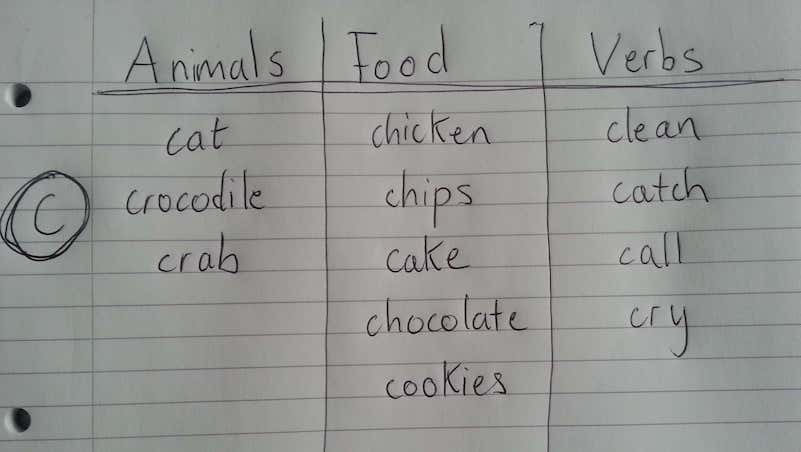15 Best ESL Games for Adults

15 Best ESL Games for Adults
Including games in an English class with adult learners can be a difficult one. Although some students are happy to play at any time, many either don’t want to make a fool of themselves in front of others, or in their view waste class time. We as teachers are sensitive to that, so it’s very tempting to just play it safe and stick to more formal language exercises.
The problem with that is you’re missing out on an extremely valuable learning tool. Not only are English games a fantastic way to review recently learned topics, they’re the perfect warm-up activity, a great refresher after a period of more intense work, and even a reward once your students get to know and love them!
The trick is learning how to employ them. While in a kids class almost any game will go down well at any point, ESL games for adults should be carefully planned, related to current class work, and have a clear language goal in mind. Not all games are created equal either – we have to make sure we choose the right ones for our audience and classroom set-up.
To help you do just that, we’ve produced this list of the best ESL games for adults. They’re fun and engaging, but are chosen to match the needs and sensibilities of older students. We’ve included some helpful tips on their implementation, but for full instructions, just click on the title of a game below (instructions open in a new tab).
Guessing ESL Games for Adults
In these games students describe words to their teammates against the clock. It might sound simple, but it’s great fun, and a really effective way to review vocabulary. Why not try playing as a warm-up activity, either to see if students remember what was learned in the last session, or to refresh knowledge relevant to today’s class?
While in Articulate students come to the front and describe for their team, in Heads Up the team describes for one student who can’t see the words (‘reverse Articulate’). This can suit students who aren’t comfortable describing alone in front of the class. Normally each word guessed correctly is worth one point for the team, but you could also play non-competitively if you think your students would prefer it.
You may well have seen the ‘Heads Up!’ app or the related segments on the TV show ‘Ellen’ – check out the clip below for a (clearly very excited) Harrison Ford playing. Just be aware that in many of these instances players use gestures as well, which should be outlawed in this classroom game (for an gestures-based guessing game see Reverse Charades below). The Heads Up! app itself is fun for advanced students, but often comes up with obscure words – that’s why we’ve created our interactive Articulate game, especially designed for English classes.
Reverse Charades is a guessing game in which players give clues with actions and gestures. It’s a great alternative for lower-level students, who are not yet confident/skilled enough to produce descriptions. The focus here is simply on recognition and understanding of a vocabulary word, and it’s an exercise you can include during the main class to cement knowledge.
Many of us will have played Charades as a party game, but the ESL class version is slightly simplified. Instead of acting out different syllables, students just make the action that corresponds to the word. As such the game lends itself to practising particular types of vocabulary, e.g. sports and hobbies, emotions and feelings, health problems etc. Our interactive Charades game has a variety of suitable pre-made categories.
Why ‘Reverse Charades’ here and not Charades? In Charades one student stands up and acts in front of the class, which might be fine with kids, but you don’t find too many adult learners who are eager to do that! In ESL games for adults you want to reduce the embarrassment factor as much as possible, and in Reverse Charades this is achieved by getting the whole class to act together for one or two students guessing.
If Reverse Charades is a good guessing game for beginners, what about when Articulate or Heads Up gets too easy for more advanced students? Make things more complicated by adding words that students can’t use in their descriptions! This is a great extension once students are comfortable with this type of game, and a really fun warm-up activity. Because they’re forced to use synonyms instead of the obvious words, it helps practise a wider set of vocabulary.
Taboo is most commonly played like Articulate, with one student describing for their team, as it makes it easier to spot the use of outlawed words. One common issue is the time it takes to prepare suitable those ‘taboo’ words for each vocabulary word – but luckily we’ve created an interactive Taboo game which automatically presents them alongside the main vocabulary word, for a variety of different categories.
TV Show-Based ESL Games for Adults
TV game shows are a great source of ideas for ESL games for adults, and one of the easiest to implement is the classic British programme Countdown. Players take turns selecting a consonant or a vowel to produce nine random letters, and from these letters they have to make the longest word they can. It can be a bit of a challenge, so it’s best played with higher levels, but students often get really into it, and it’s an ideal game for more reserved students.
Countdown works particularly well as a warm-up activity for a class in which there’s likely to be a few latecomers. Not that you want to encourage this, but because students work individually and it consists of multiple short rounds, students can join in as they arrive with minimum disruption. Plus the students who arrived on time are rewarded in their score as they’ve played more rounds!
The easiest way to play this game is with our interactive Countdown game. Unlike other online tools this gives you the option to set the time allowed to one minute instead of thirty seconds (as in the TV game show), the latter being too difficult for all but the most advanced students.
Another popular warmer (again for intermediate and advanced students) is based on the TV game show ‘Call My Bluff’, in which students have to guess the correct definition of an obscure word from three possible options. Not only is it a fun competitive activity, the way in which it gets students thinking about language and related words is ideal for the start of a class. You can also use it to practise modal verbs of possibility (e.g. That might be true…).
There are two options for implementation. For a quick warm-up activity, pre-prepared definitions work best, and our interactive Call My Bluff game is ready to use for this purpose. Present ten words as a quiz, with teams scoring a point for each correct guess. If you have more time however, you could ask the teams to prepare words and definitions themselves first. They could even include example sentences for each option.
Many of the above games are well-suited to vocabulary practice, but what about grammar? The great thing about Jeopardy is you can use it with almost any language topic, and its adaptability makes it the ideal choice for a review class. Simply choose five topics your class has studied recently, and write five questions related to each of them.
To be clear, we’re just borrowing the scoring system from the Jeopardy, not the gameplay method of giving questions as answers as well! Each question in a topic category is worth a different number of points; teams choose a category and points value which reveals their question, and are awarded that number of points if their answer is correct.
We’re currently working on a great interactive Jeopardy game with pre-made categories, but for now JeopardyLabs is a great tool for creating your own games if you have a projector. If not don’t worry though – just prepare the questions ready to read out, and draw the points grid on the board in class.
ESL Games for Adults from Jimmy Fallon
One TV show that stands above the rest when it comes to ESL games for adults is The Tonight Show Starring Jimmy Fallon. Many of the segments they use are great fun to play in class, and work particularly well as warm-up activities. Perhaps the most popular is Password, a game in which students guess vocabulary words from single-word clues.
This game is played with two or three teams, and one student from each team sitting at the front facing away from the board. Write or project a word on the board – our interactive Password game has suitable pre-prepared words you can use. The teams then take turns giving a one word clue (for example for dolphin, “animal” or water”), followed by a guess, until a guess is correct. Be aware that you don’t need to choose difficult words, at least until your students get the hang of things!
Another enjoyable segment you can use as a vocabulary-based warmer is ‘The Whisper Challenge’. In this game students silently mouth words or phrases to their teammate(s). Normally it’s best to limit possible words to a given vocabulary category to make guessing easier. Our interactive Whisper Challenge game allows you to do this, and even plays background music to mask any whispered sounds. There’s also the option to choose idioms or random sentences for more advanced/experienced students.
It might just seem like a bit of fun, but the game actually practises an important skill. Lip-reading is a significant element of interpreting speech, especially in noisy environments. This is demonstrated by the McGurk Effect, a concept you could introduce your students to if you think they’d be interested or it would motivate them. The student mouthing the word also practises enunciating clearly and correctly.
A slightly different type of game played on Jimmy Fallon is Box Of Lies. Instead of just recognising vocabulary words, this exercise requires students to put together coherent sentence descriptions, great for practising fluency. On the TV show players are shown a strange object in secret, which they can choose to describe truthfully, or invent a different description.
In the classroom we simply replace these strange objects with random pictures, shown to a student at the front on the computer. You could source your own images, but the easiest way to play is using our Box Of Lies generator. As students are describing a picture, the game also doubles as a way to practise that skill, including the correct use of prepositions. When students have finished their description, their classmates have to guess whether they were describing truthfully, or inventing something completely different.
Category-Based ESL Games for Adults
Vocabulary category games are really popular with any age group, and perfect as a no-prep warmer. They’re a particularly good choice as ESL games for adults because they’re fun without requiring too much movement, or spotlight on individuals. Don’t miss the opportunity to review recently learned or upcoming topics by using them as categories!
Perhaps the most well known of these games is Scattergories. In the original version, players have to complete twelve categories with a single word (all beginning with a predefined letter). However, not only does that require you to think of lots of different categories, it doesn’t provide an extensive test of vocabulary knowledge, and makes the game less reusable. We prefer a variation in which students work in small teams to complete three categories with as many words as they can. The team with the most valid words in a given category wins a point for that round.

On the flip-side, sometimes beginners don’t have enough vocabulary knowledge to think of lots of different words. In that case the game Stop is more suitable, because students race to think of only one word in each category (with six categories this time). It also has the advantage of being shorter if you’re looking for a very quick warmer, and can work with just two or three students too.
As in Scattergories, students draw category columns on a piece of paper. Some good categories to use include animals, clothes and accessories, sports and hobbies and jobs. You then give them a ‘random’ letter – you may want to select an achievable one for your categories! When a player has written a word in each column they shout “Stop!”, and the round ends. Students then swap papers and score points for each word written.
Our last category game is one that never fails to go down well, Name Ten. In each round students think of ten words in one vocabulary category in one minute, without any specified first letter. The key feature though is an element of the original Scattergories game, in which only unique answers are worth a point. This is great because students have to think of multiple words, but are also rewarded for more obscure vocabulary.
Not only is this game suitable for all levels, it’s less likely to be dominated by stronger students. While they may be able to think of more difficult vocabulary, the time constraint makes that less prevalent, and there is an element of luck in which words other teams choose to write. The game works best with three or four teams, each of which you assign a column on the board for checking answers. The teams take turns reading out each other’s word sets, and as they do so you write them in those columns, or cross off existing duplicates as appropriate.
Party-Style ESL Games for Adults
We all have times when we need a more relaxed, light-hearted activity – as a time-filler after a tough test for example. If you can get your hands on a deck of cards, then Kings Cup (also known as Ring Of Fire) fits the bill perfectly. An adapted drinking game, here the alcohol is replaced by English speaking challenges! For a variety of suitable pre-prepared challenges, try our Challenge Generator.
The cards are arranged face down in a circle, and the students sit in a circle around them. They take turns picking a card, with the resulting action determined by the rules below:
| Card | Rule | Description |
|---|---|---|
| Ace | Waterfall | This student says a category of personal preference (e.g. My favourite pizza topping). In a clockwise directions, the students take turns saying their preference. However, all the students have to hold their breath from the start until they answer! |
| 2 | You | This student chooses another person to do a challenge. |
| 3 | Me | This student does a challenge. |
| 4 | Floor | The last student to touch the floor has to do a challenge. |
| 5 | Survive | This student has to name five luxury items they would want if they were stranded on a desert island. |
| 6 | Never Have I Ever | The students take turns saying things they have never done, but they think others have. Each student holds up three fingers to represent three lives. If a student has done an activity, they lose a life. The first student to lose all three lives has to do a challenge. |
| 7 | Heaven | The last student to raise their hand has to do a challenge. |
| 8 | Mate | This student picks another student to be their ‘mate’. Every time the original student has to do a challenge, their mate has to do it as well. |
| 9 | Rhyme | This student says a word. The students take turns (in a clockwise direction), saying words that rhyme with that word. This is too difficult for beginner/lower intermediate students, so try words that start or end with the same letter instead. This is repeated round the circle until one student can’t say a word, or repeats a previous word. That student has to do a challenge. |
| 10 | Categories | This student thinks of a vocabulary category (e.g. pets, sports, green foods). They say one item from this category, then the student to their left has to say another item. This is repeated round the circle until one student can’t say an item, or repeats a previous item. That student has to do a challenge. |
| J | Thumb Master | This student can put their thumb on the table at any point during the game. When they do that, all the other students must copy them. The last student to copy them has to do a challenge. |
| Q | Question Master | This student gets to ask any other student a question, and they have to answer (within reason!). |
| K | King For The Day | The student describes what they would do if they were in power for a day (using grammar appropriate to their level). |
One of the games that’s often included in Kings Cup deserves a special mention as a standalone activity – Never Have I Ever. Chances are you might have played this at a party yourself and enjoyed it, so why not include it in your English class? You can use it as a warmer, and/or to practise talking about experiences in the present perfect simple.
Students all raise a hand with their outstretched four fingers and thumb representing five lives (“like Mario” usually helps get the concept across!). They then take turns saying things that they have never done, but they think their classmates have, e.g. I have never gone skiing. If any student has had this experience, they lose a life, and put a finger down to show that. Optionally, you could also ask those students to give a specific experience in the past simple, e.g. I went to the Alps last year.
The winner is the last player with a life left. Players will have a lot of fun trying to target their classmates by guessing what experiences they have had! Plus it’s a good opportunity to correct common mistakes like “I have never been in Paris“.
Beer Pong you say? How can that be suitable for the classroom?? Well sure it’s definitely for a more relaxed session, but it’s a fantastic surprise treat for those more active students, and a great way to wake them up on a sleepy afternoon. Like Jeopardy, you can adapt the language topics to anything you’ve been studying recently, so it’s perfect for a review class.
The idea is that instead of players having to drink beer when a ball lands in one of their cups, they have to complete an English challenge (answering a question, naming vocabulary, fill-in-the-blank etc.). You could make these challenges yourself, but that’s a lot of work; a better way is for students to write use their textbooks/notes to write them beforehand, a review technique in itself. In pairs they write 12/20 of them (depending on the number of cups you have) on small pieces of paper, then swap sets with another pair to play.

We hope you’ve found this list of ESL games for adults useful and enjoy playing them in your English classroom! As always, when you do try out something new, note how it goes down with your students to learn what they prefer and inform future choices. These ideas are just the tip of the iceberg – for lots more great options, check out our Games section.
Happy Teaching!

